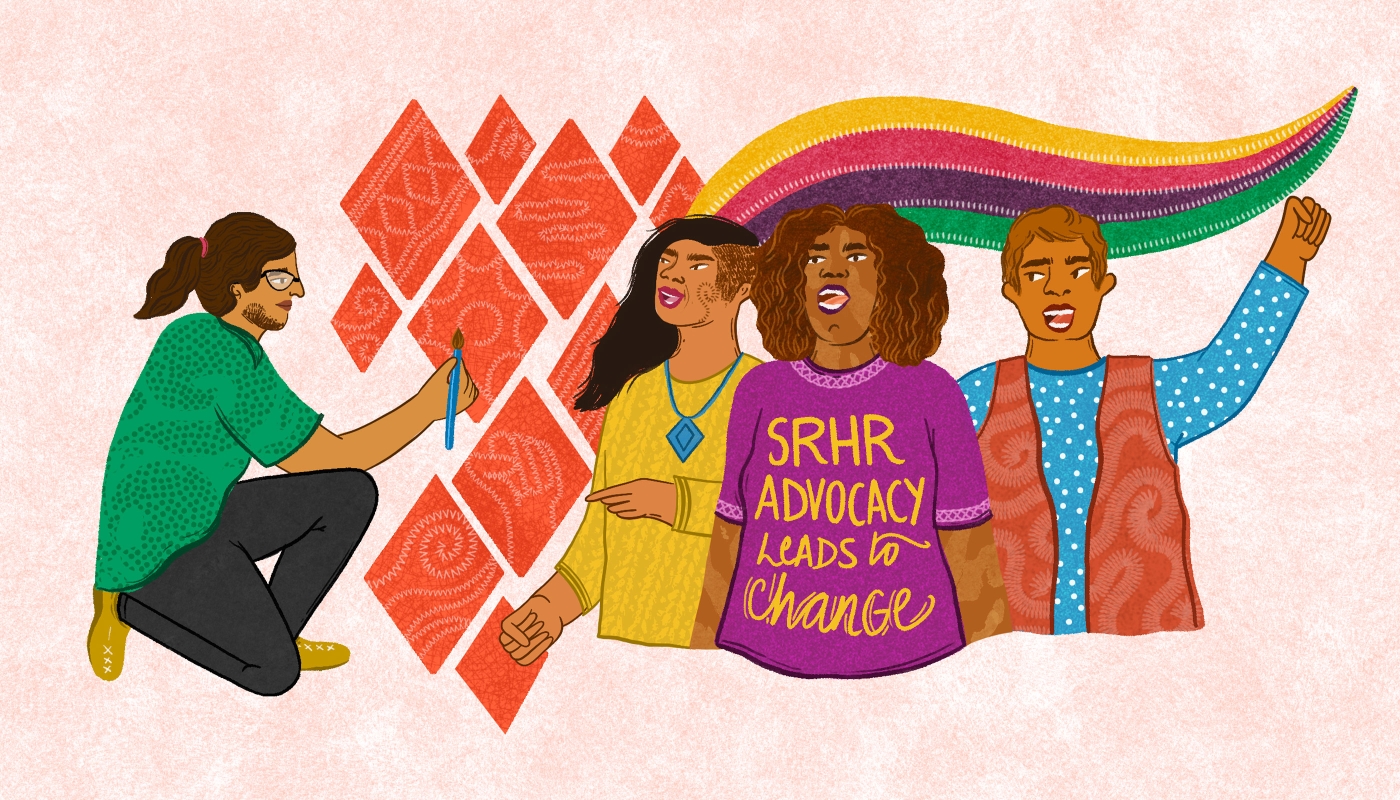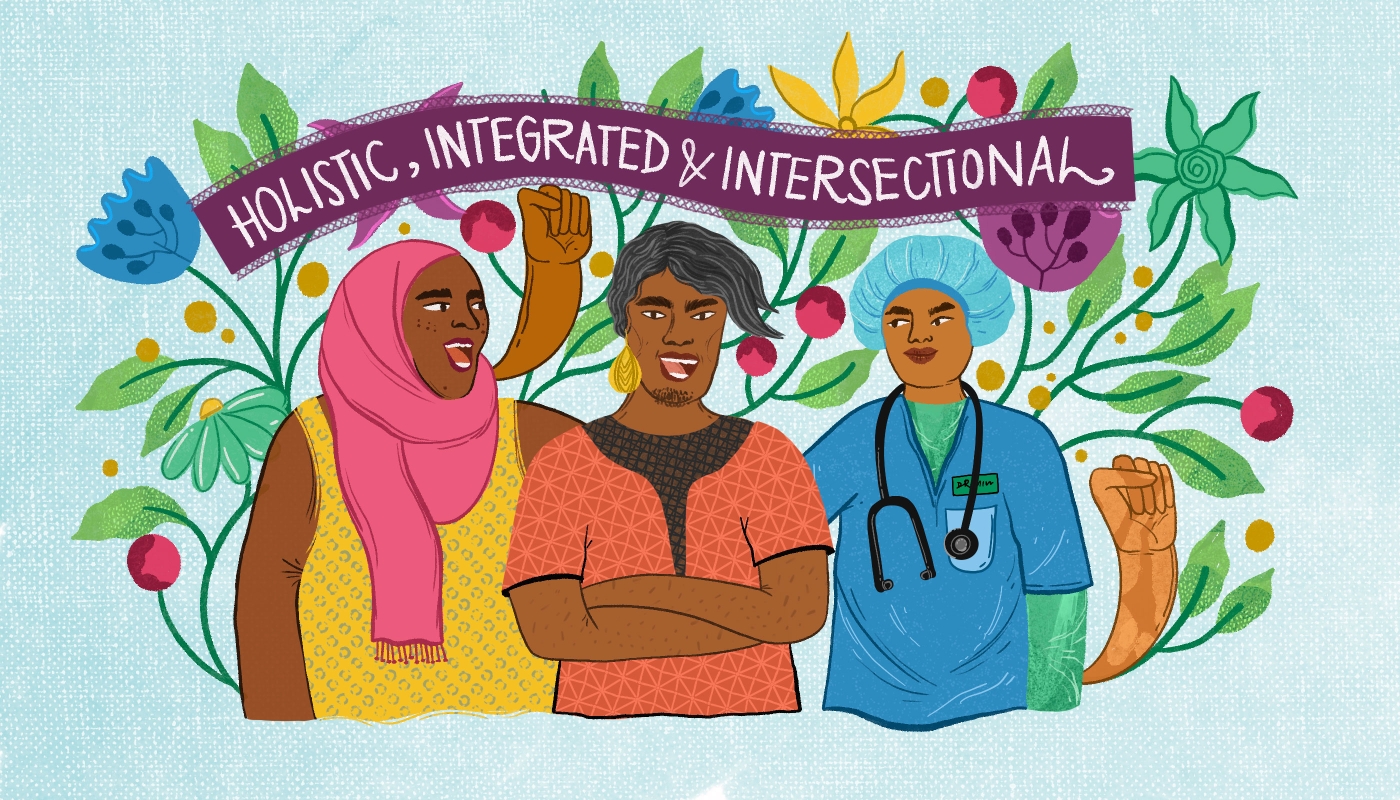Advocacy is about taking action to create change. Advocacy can be aimed at the state or government to enact law and policy change. It can also be used to transform social norms and foster supportive contexts for policy implementation.
Advocacy can be used to:
- Influence decision makers
- Eliminate harmful and discriminatory laws and policies
- Mobilise towards the enactment of progressive, rights-based laws and policies
- Hold governments accountable to their human rights obligations
- Amplify voices that are often marginalised in public discourse
- Raise awareness of particular issues
- Strengthen connections within and among social movements

Advocacy for Sexual and Reproductive Health and Rights
Advocacy is key to upholding sexual and reproductive health and rights (SRHR). It leads to long-term policy and legal reforms essential for the realisation of human rights. Advocacy is also critical to counter regressions and rising attacks on SRHR. As the most affected by restrictive SRHR contexts, feminist movements (including youth-led organizations and women’s rights organisations) are the drivers of progress, accountability, and people-centred policies at the local, national, regional, and global levels.
By working in coalitions, partnerships, and transnational alliances, feminist movements surface demands that take into account the differentiated ways change is needed to address the systemic barriers faced by diverse communities. Feminist advocacy has been essential to integrating sexual and reproductive health as part of healthcare and as a central tenet of human rights.
Achieving advocacy goals takes time and requires investments in movements and organisations leading this work. Funding feminist advocacy for SRHR is essential to ensure civil society is represented at decision-making tables, thus enabling people to claim their rights and promoting rights-based partnerships; yet, less than 1% of all global funding directly reach feminist and women’s rights groups. As a champion of SRHR at home and abroad, Canada can and must step up its political and financial support for the people and organisations who do the hard work to make these rights a reality.
Why is SRHR advocacy important?
- Because SRHR needs to be a priority. SRHR needs and issues are often stigmatised. This stigma often leads to an active de-prioritization by governments and decision makers. SRHR advocacy ensures that SRHR remains on the agenda.
- Because SRHR advocacy leads to change. Advocacy that engages from the local to the national and international level is required to galvanise and sustain political and normative change. SRHR advocacy facilitates and connects change across all of these levels.
- Because advocacy addresses root causes. Advocacy, and particularly grassroots and feminist advocacy, is well placed to identify and challenge systemic barriers to SRHR, and to advance sustainable and human rights-based solutions.
- Because advocacy supports an active and vibrant civil society. Civil society organisations defend collective interests and increase accountability, promote participation from different communities, directly engage in community service, and challenge prejudice. A free and pluralistic civil society is a necessary part of a healthy and functioning democracy.
Why Canada must Continue to Invest in SRHR advocacy
In line with its Feminist International Assistance Policy, Canada must invest in partnerships that enhance the capacity of independent feminist and women’s rights organisations to organize, to challenge harmful social norms that undermine gender equality, and to hold governments accountable to their SRHR obligations.
Canada must continue to increase investments in standalone programming for advocacy for SRHR. This includes: providing long-term, flexible, sustained, and core funding to feminist and women’s rights organisations leading legal and policy advocacy for SRHR; prioritizing initiatives focused on feminist capacity building, technical assistance, and learning and knowledge-exchange among organisations and advocates seeking to affect legal and policy change.
As a global SRHR donor, Canada must adopt a holistic, integrated, and intersectional approach to SRHR and advocacy and actively work to deconstruct artificial silos between SRHR issues, thereby contributing to the strengthening of movements that adopt intersectional feminist approaches.
As a champion of SRHR, Canada must demonstrate global leadership in protecting and promoting enabling environments for civil society and human rights defenders within its territory and exercise its diplomatic and political strength to secure these conditions for all advocates and defenders across the globe.
